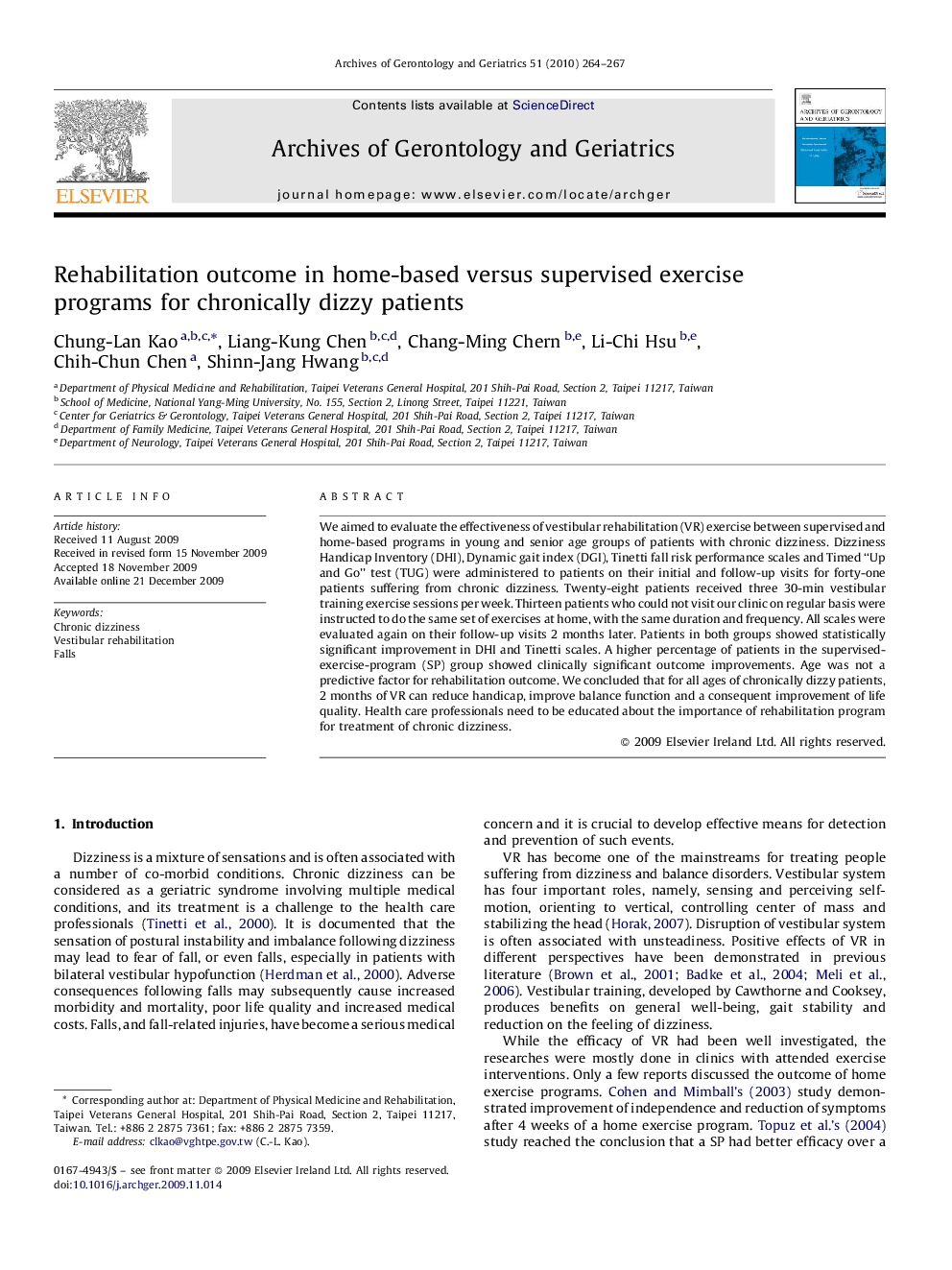| Article ID | Journal | Published Year | Pages | File Type |
|---|---|---|---|---|
| 1903701 | Archives of Gerontology and Geriatrics | 2010 | 4 Pages |
We aimed to evaluate the effectiveness of vestibular rehabilitation (VR) exercise between supervised and home-based programs in young and senior age groups of patients with chronic dizziness. Dizziness Handicap Inventory (DHI), Dynamic gait index (DGI), Tinetti fall risk performance scales and Timed “Up and Go” test (TUG) were administered to patients on their initial and follow-up visits for forty-one patients suffering from chronic dizziness. Twenty-eight patients received three 30-min vestibular training exercise sessions per week. Thirteen patients who could not visit our clinic on regular basis were instructed to do the same set of exercises at home, with the same duration and frequency. All scales were evaluated again on their follow-up visits 2 months later. Patients in both groups showed statistically significant improvement in DHI and Tinetti scales. A higher percentage of patients in the supervised-exercise-program (SP) group showed clinically significant outcome improvements. Age was not a predictive factor for rehabilitation outcome. We concluded that for all ages of chronically dizzy patients, 2 months of VR can reduce handicap, improve balance function and a consequent improvement of life quality. Health care professionals need to be educated about the importance of rehabilitation program for treatment of chronic dizziness.
